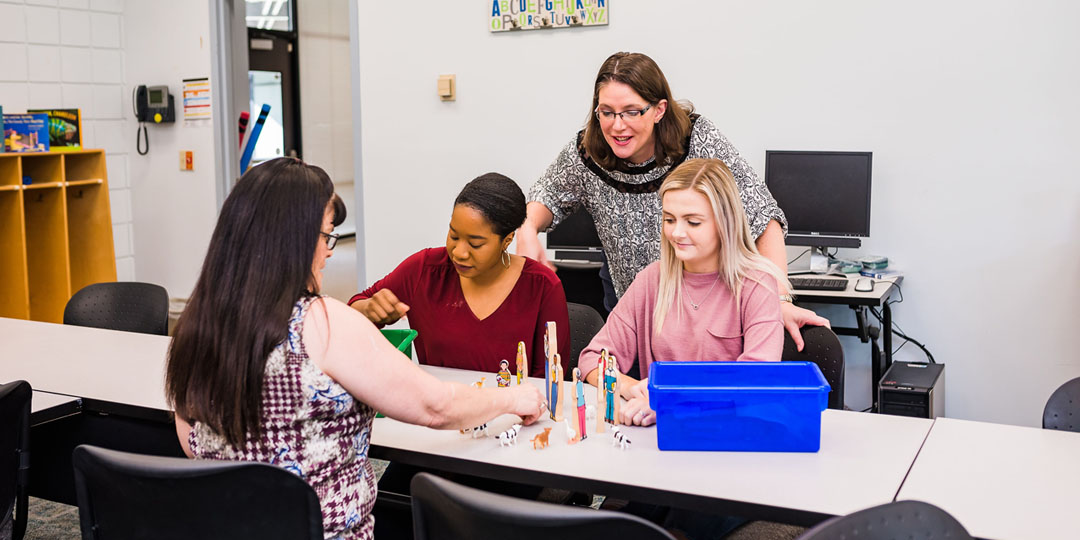Early Childhood Inclusion Specialization, C.C.C.
Program Overview
Early Childhood Inclusion Specialization, C.C.C (ECIS-CER) 12 credits

This program helps students become caregivers in early childhood education, focusing on inclusion for children with disabilities. It also provides training for people who currently work or have worked in this field. The Individuals with Disabilities Education Act (IDEA) requires that all children receive education in the least restrictive environment. This has led to an increased need for teachers trained to support young children with disabilities. More people now recognize the benefits of inclusive classrooms and early intervention. The certificate program includes 12 credit hours and improves teachers' job prospects. It features coursework that is also part of the Child Development Early Intervention certificate. This certificate acts as a step toward obtaining the CDEI certificate and pursuing an Associate of Science degree in Early Childhood Education.
Early Childhood Inclusion Specialization, C.C.C.
12 credits
to earn certificate
100% online
courses
4 courses
for completion
Guided Pathway
Review the guided degree pathway where you will find a detailed plan for your courses and other requirements each semester that prepare you for graduation and your transfer goals.
Early Childhood Inclusion Specialization, C.C.C.

What our graduates are doing now!
Graduates of this program have a variety of career position opportunities as early childhood education caregivers. Specifically, graduates can become Child Care Teachers and Teacher Assistants.
STARTING SALARIES
Salaries begin at $11.65 per hour or $26,640 per year.
- This program may be started during the fall or spring semesters.
- This program offers students:
- Experiential learning opportunities
- Highly qualified professors
Cost of Attendance
- CHD 1220
- No textbook required.
- EEC 1001
- National Association of Early Childhood Education. (2022). Developmentally appropriate practices in early childhood education. Serving children from birth through age 8. NAEYC.
- EEC 2300
- Gronlund, G. & Rendon, T. (2017). Saving play. Red Leaf Press.
- EEX 2013
- No textbook required.
Explore FGC and your Program of interest